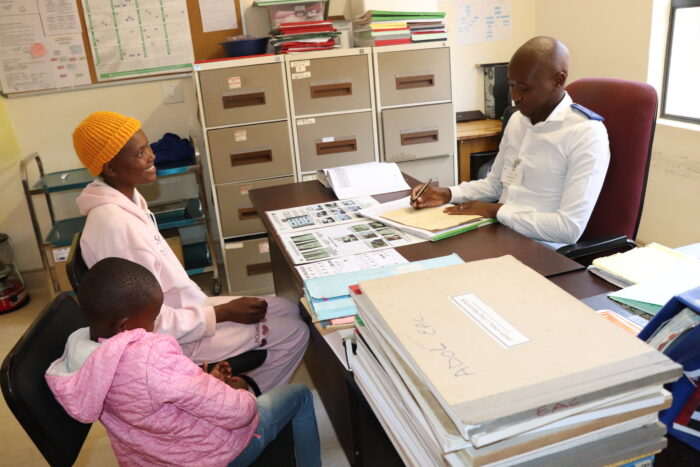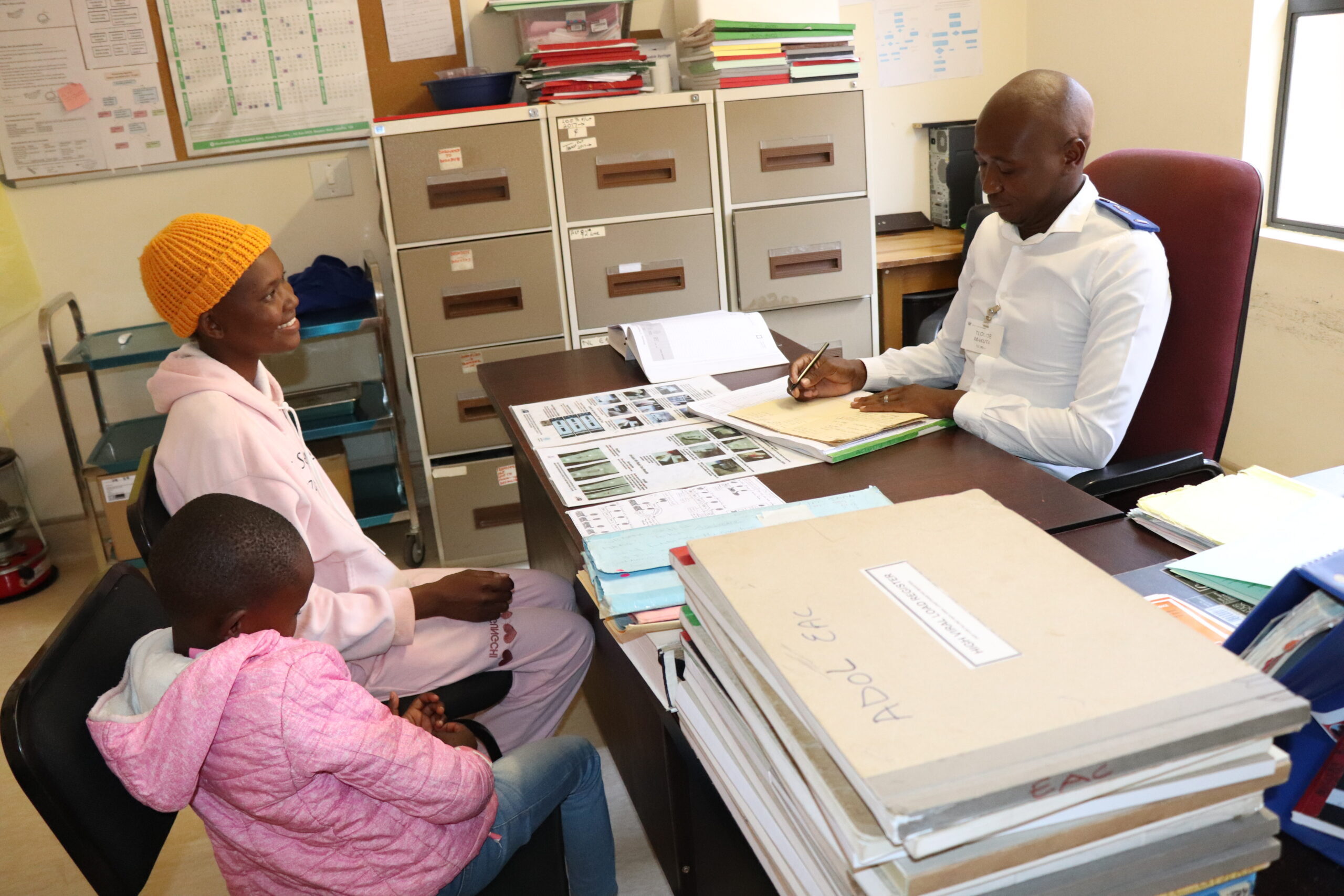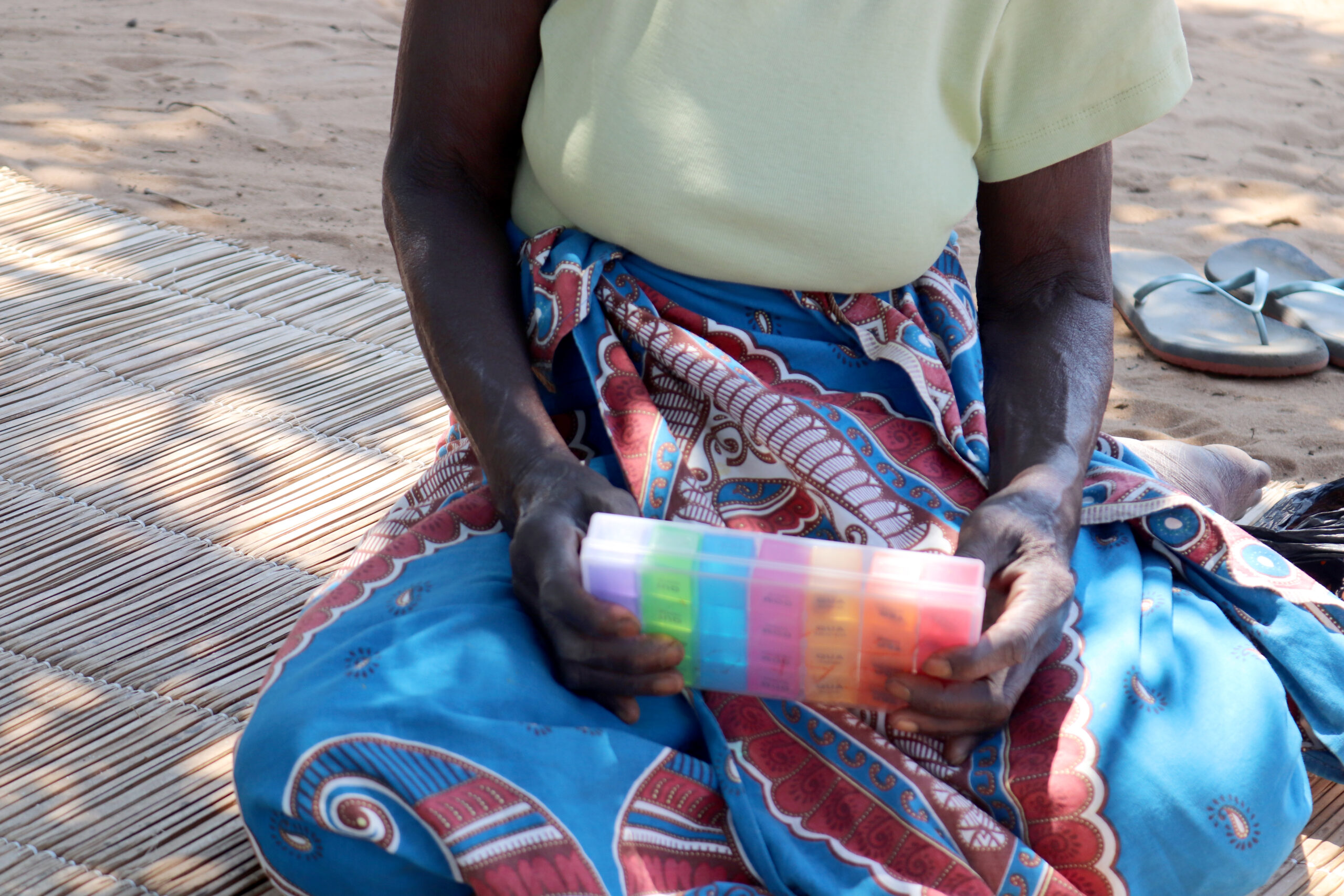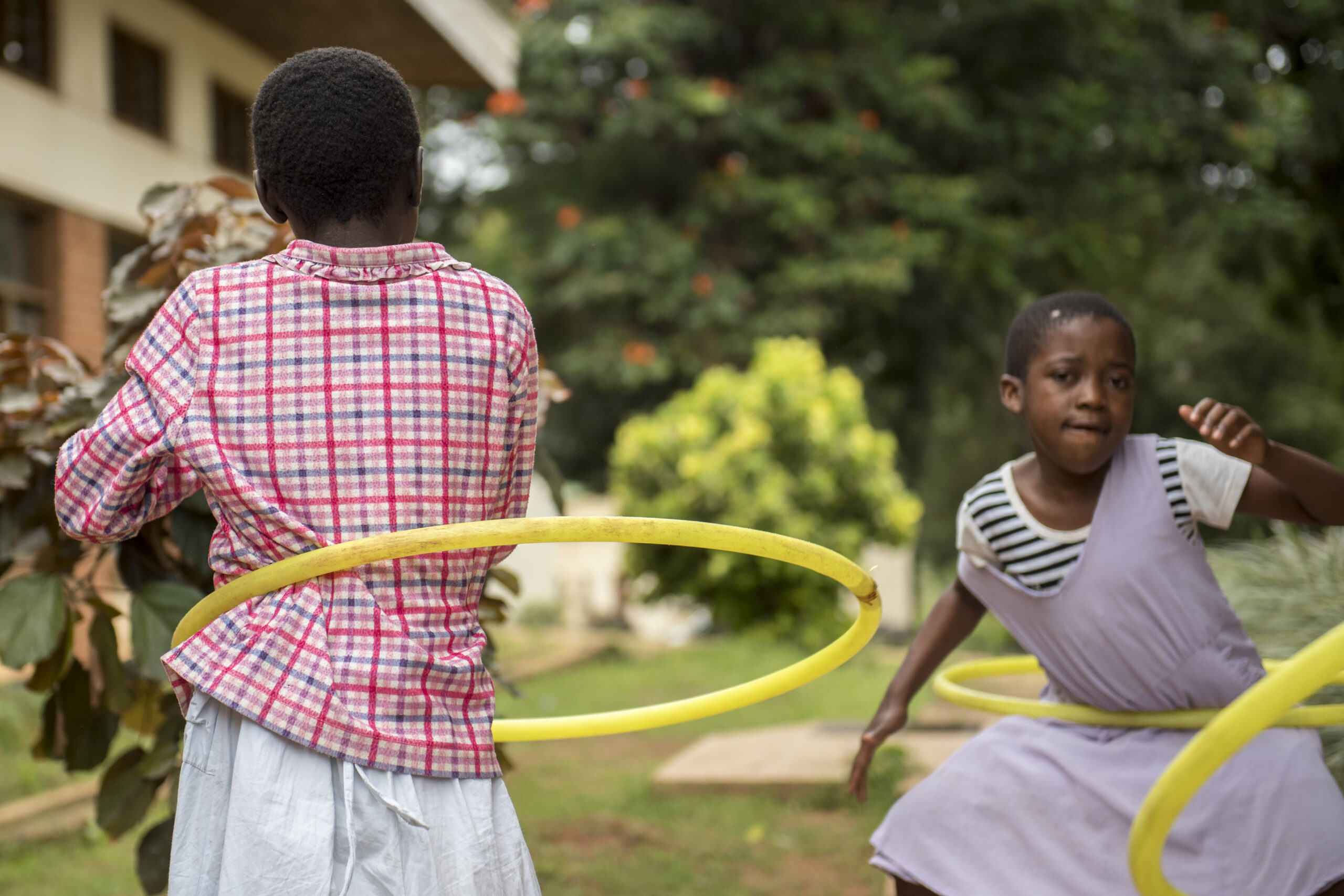Libuseng Mohapi is a 25-year-old living in Berea, a northwest district in the mountain kingdom on Lesotho. Last year, she found herself in a health crisis, experiencing coughing, weight loss, night sweats, and a high fever. A visit to the Maluti Hospital provided an answer and she was diagnosed with tuberculosis or TB.

Libuseng was grateful that she was put on treatment immediately and relieved that the hospital reached out to ensure that her household was healthy.
Because it is so easily transmitted in a confined space, TB requires a household and family response. Children nearly always get infected from adult TB patients, so if any adult has TB, it is important to ensure that children, in particular, are traced and tested. That said, all members of a household should also be tested.
TB Nurse Makuta Tlouoe at Maluti Hospital reached out to Libuseng’s sister and her family which include her husband and their three children were called to visit the facility to get tested.
Testing ruled out TB to Libuseng’s sister and husband, as well as two of their children, ages 12 and 14. But their 7-year-old daughter, Kamohelo, was confirmed to have active TB and was immediately enrolled in TB treatment. Since TB is the most frequent co-infection with HIV, Kamohelo was also tested for HIV and found negative.

The two other children were given TB preventive therapy—because children and adolescents exposed to TB are at increased risk of infection. TB preventive therapy reduces the possibility that latent TB may develop or progress into active TB disease in the future.
EGPAF Supports the Lesotho National TB Program

Lesotho is one of the 30 high-burden countries for TB, with an estimated annual incidence of 661 TB cases per 100,000 persons. Infants, young children; and immunocompromised children with HIV or malnutrition are at high risk of being infected with TB.
The Lesotho Ministry of Health follows the World Health Organization (WHO) and national guideline that stipulate that when an individual has tested positive for TB, health care workers conduct contact tracing, meaning that they screen all members of the household and family for TB. Community health workers visit the home, or the family members are called to the facility, as happened with Libuseng Mohapi and her family.
The Elizabeth Glaser Pediatric AIDS Foundation (EGPAF) supports the Ministry of Health in eight out of ten districts—funded by the U.S. President’s Emergency Plan for AIDS Relief (PEPFAR) through USAID and CDC. EGPAF provides TB technical assistance at national, district, and facility levels through capacity-building activities such as trainings, mentorship, and supportive supervision.
 EGPAF also helps to find children with TB through stool testing which is an easy and sensitive measure. Children living with HIV who are not virally suppressed are diagnosed for TB through urine testing. These methods are less invasive and more child-friendly than sputum testing, which is a standard testing method for adults.
EGPAF also helps to find children with TB through stool testing which is an easy and sensitive measure. Children living with HIV who are not virally suppressed are diagnosed for TB through urine testing. These methods are less invasive and more child-friendly than sputum testing, which is a standard testing method for adults.
In addition, EGPAF collaborates with community partners who conduct TB screening in the facility and contact tracing in the communities.
Remember: TB is preventable and curable. The earlier it is discovered and treatment is started, the better the outcome.
Thanks to diagnosis, contact tracing, and timely treatment, Libuseng and her niece, Kamohelo are now feeling healthy.




